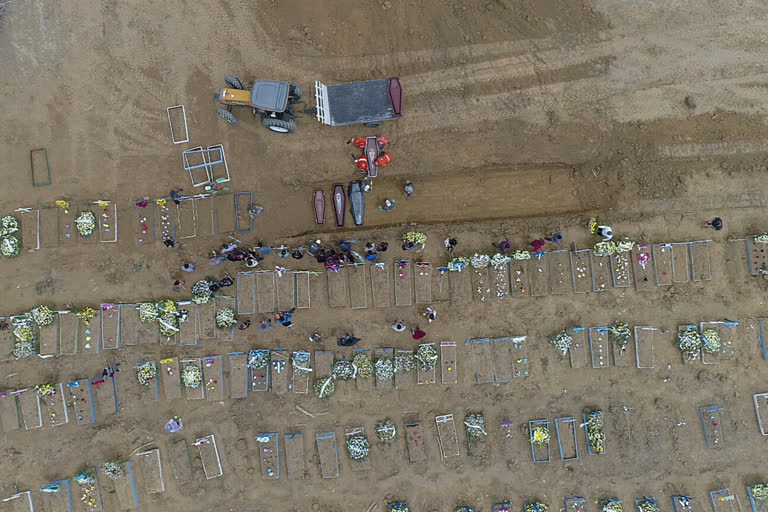Manaus: Dozens of coffins were taken to a public cemetery in Manaus, northwest Brazil, on Wednesday, where authorities decided earlier this week to open common graves to bury victims of the COVID-19 pandemic.
An excavator dug the giant grave at Nossa Senhora de Aparecida Cemetery where the coffins were buried while relatives and friends paid their last respects to their loved ones.
According to local authorities, since the pandemic, the number of burials has more than doubled, going from an average of 30 to 100 a day.
Manaus, the capital of the Amazonas state, has one of Brazil's highest rates of confirmed cases and deaths.
By Wednesday, at least 172 died and almost 2,000 were infected with the new coronavirus, according to the authorities.
Almost 80% of the cases in the state were concentrated in the capital.
Read Also: Look, how wildlife ventures into new places
Manaus is the only city with intensive care units in the Amazonas' state - but they are almost at the limit of their capacity.
Brazilian governors and mayors have said official figures largely underreport the true number of infections, as Brazil has yet to roll out mass COVID-19 testing.
The country has reported more than 43,000 confirmed cases and over 2700 deaths.
In his first news conference in Brasilia on Wednesday, the new health minister expressed doubts about projections that have guided governors' decisions on how to handle the coronavirus outbreak.
Read Also: WHO chief calls on US to reconsider funding freeze
Nelson Teich said it is impossible that estimates for total death counts vary so much, adding there needs to be a standard model of analysis.
Teich also said Brazil is already looking at ways to ease social isolation.
For most people, the new coronavirus causes mild or moderate symptoms, such as fever and cough, that clear up in two to three weeks.
For some, especially older adults and people with existing health problems, it can cause more severe illness including pneumonia and could lead to death.
(AP)



